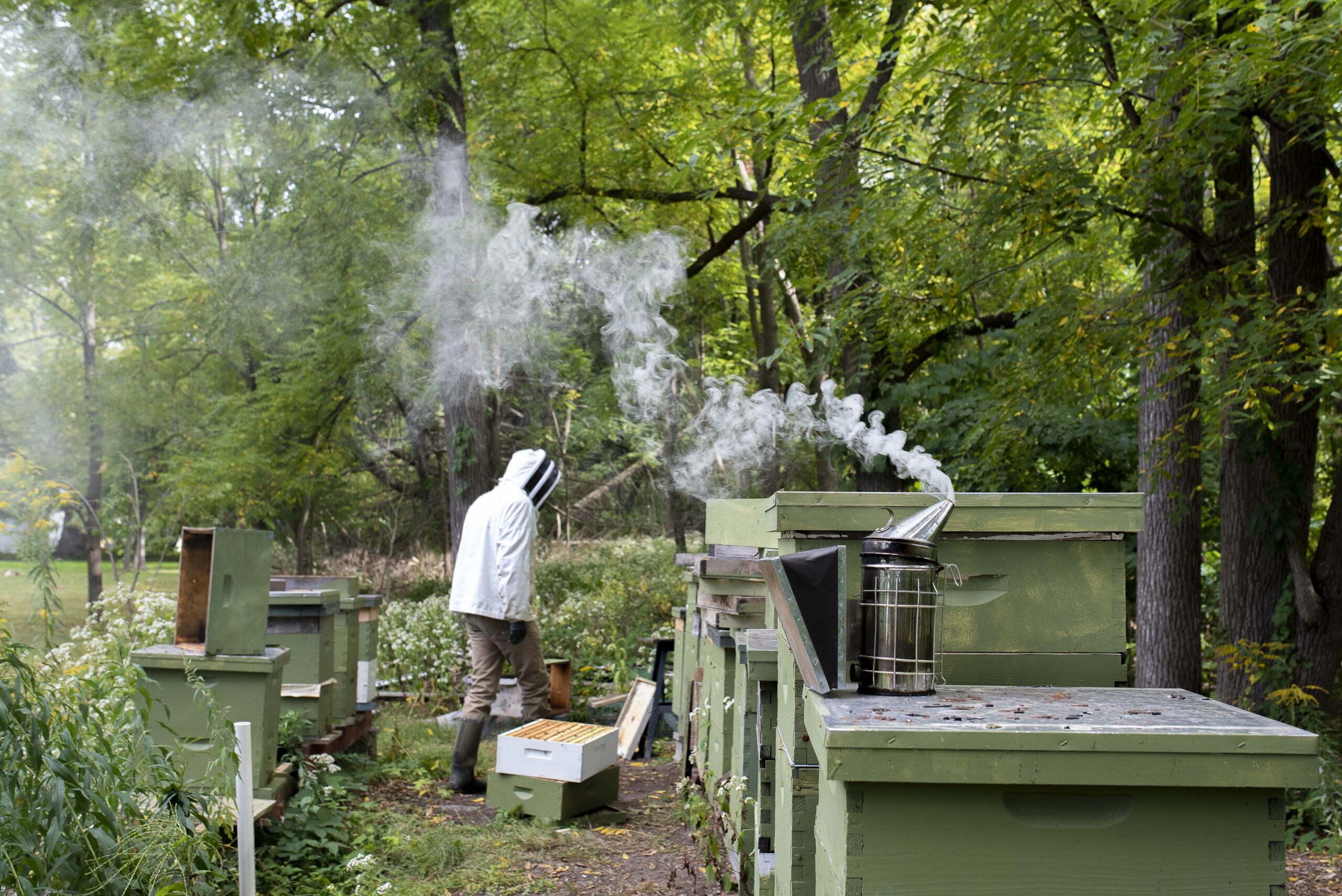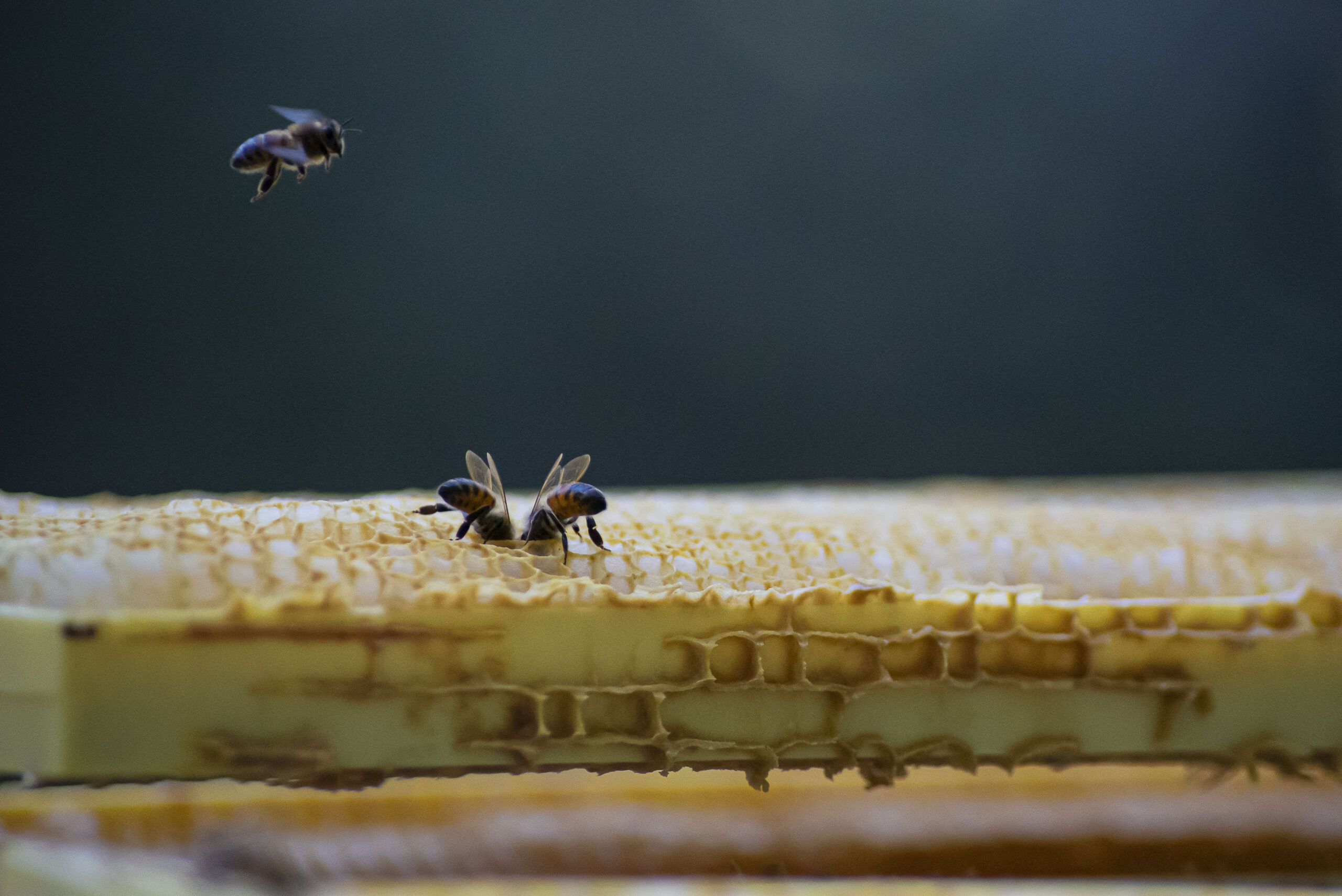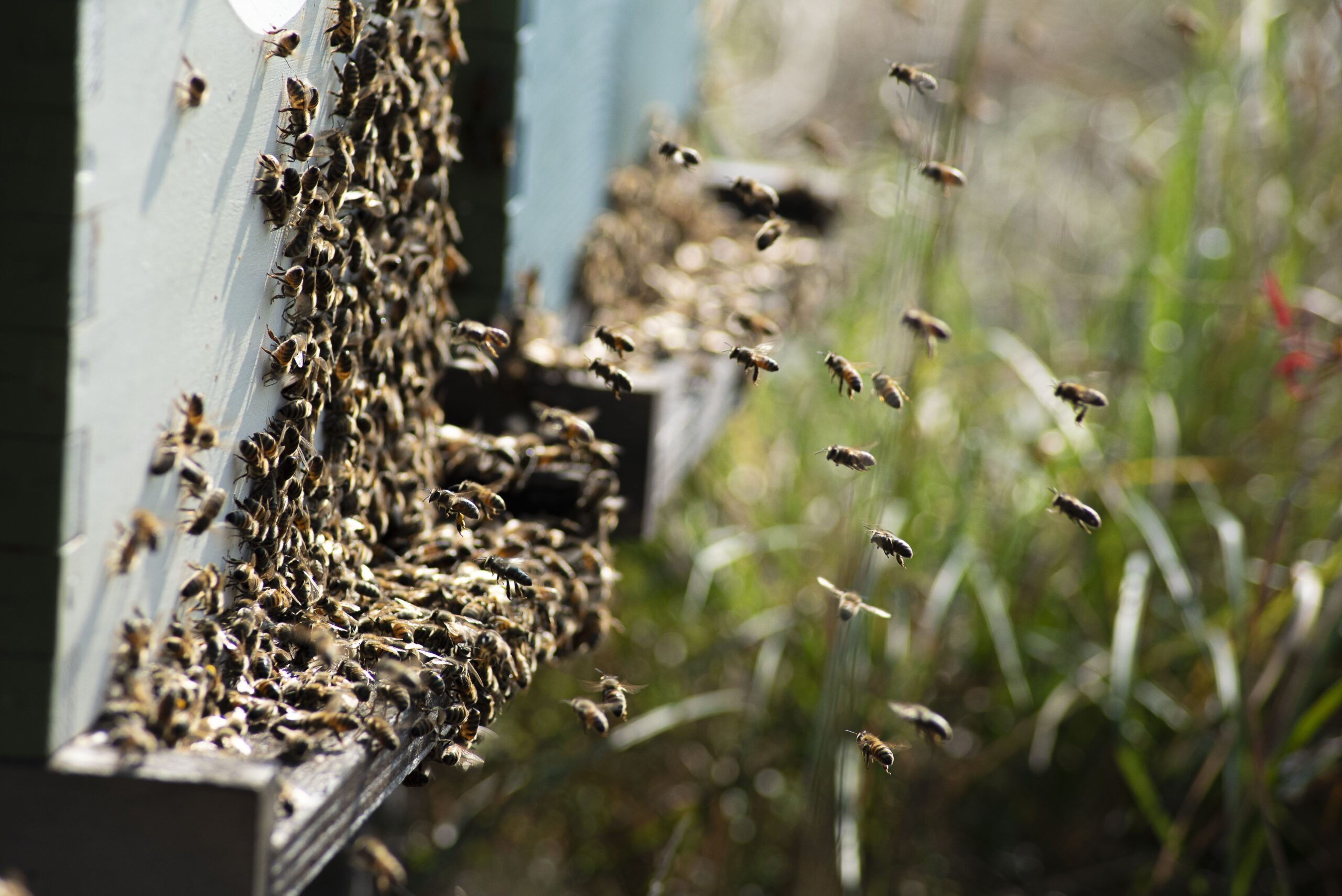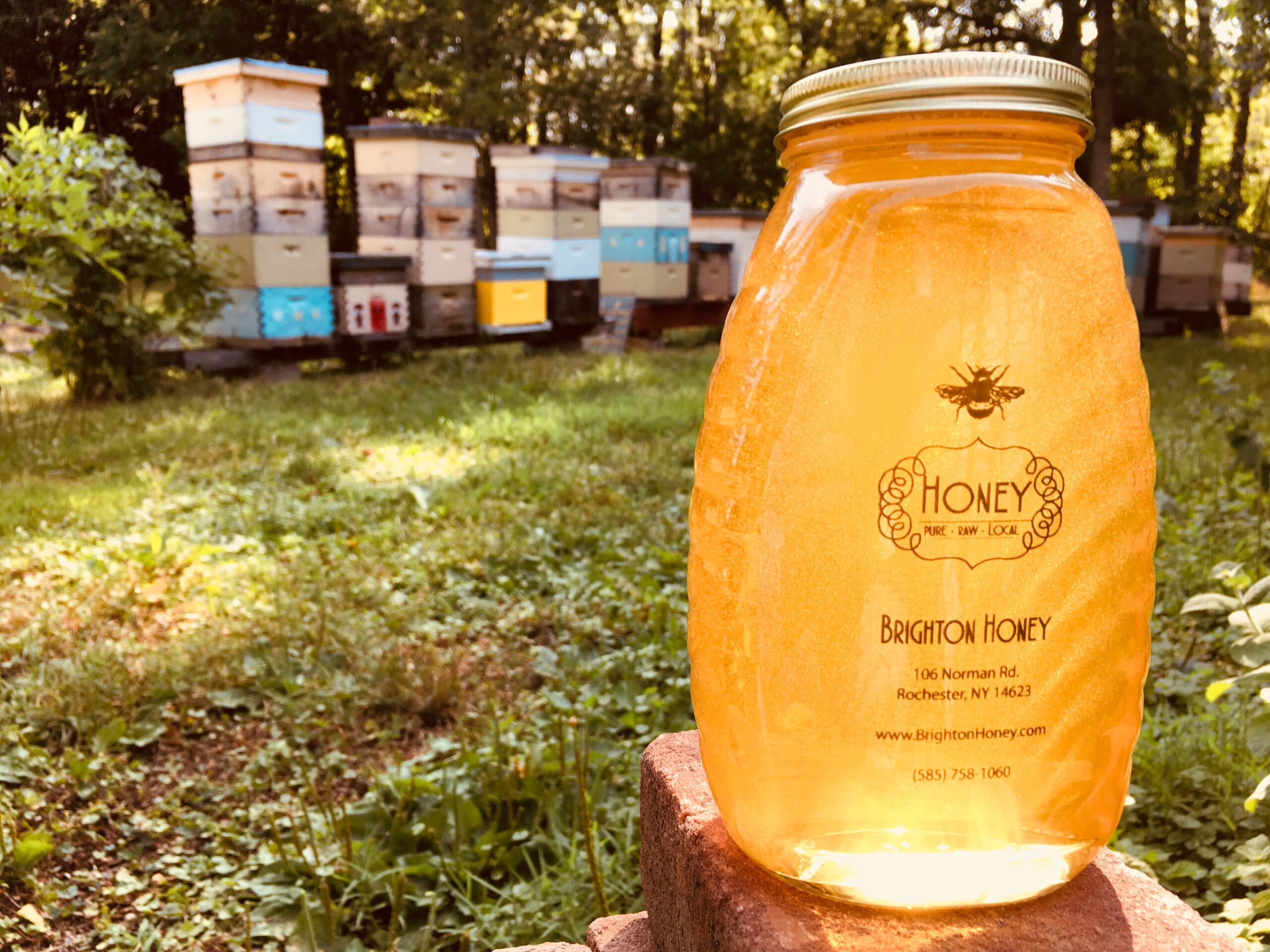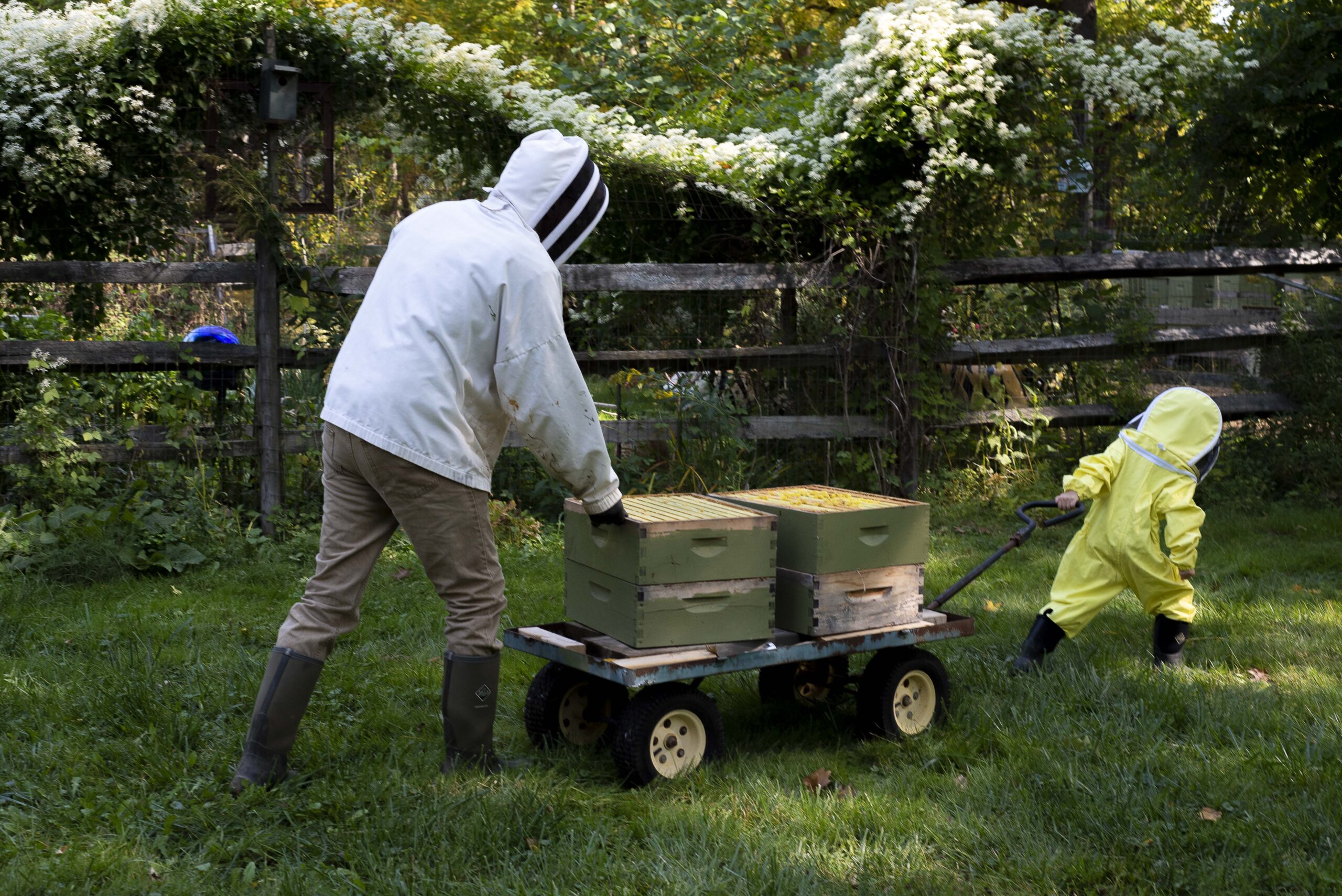[wprevpro_usetemplate tid=”1″]
Local Wildflower Honey
If you are looking for honey in the Hudson Valley please visit my brother's site West Nyack Honey
Some Interesting Honey Facts
Honey is a natural plant product gathered by bees and is:
- Naturally vegan
- Naturally kosher
- A near-zero carbon footprint source of concentrated energy!
- [faq p=62933]
- [faq p=65299]
- [faq p=62510]
- [faq p=62936]
- [faq p=63658]
- [faq p=101064]
For millennia, humans have been consuming honey. During the early days of hominids, honey was the primary source of concentrated energy. In ancient civilizations, honey was a highly prized and luxurious gift. Honey has been utilized for medicinal purposes, trade, fermentation for beverages, and as a natural sweetener for tea. Beekeepers, who manage an apiary, are unique farmers who cultivate honey as a crop. Beekeeping is the process of providing a safe and secure habitat for bees which in turn saves them energy and allows for the harvesting of honey for human consumption. This practice has been around for centuries and is one of the most important agricultural practices.
Natural Honey is a highly concentrated solution of sugars from flower nectar or a solution that has reached supersaturation. The complex flavors of local honey are a unique combination of the flora within a geographic location and the influences of climate and soil. Flower nectar is the treat or payment to bees provided by plants in trade for pollination. Honeybees drive off the water concentrating the nectar which accomplishes two major objectives saving space and naturally creating a substance that protects the sugars from spoiling.

Humans have been gathering and using honey for over 10,000 years. It was even discovered in the tomb of King Tutankhamun. The ancient Egyptians were well aware of honey's medicinal properties and produced mead, a fermented alcoholic beverage made from honey. Even today, honey is used as a medicine and many believe it has health benefits, including treating allergies, wounds, burns, and having antioxidant and antimicrobial properties. Honey is not only delicious and nutritious but also a natural product with multiple uses beyond eating it out of the jar. It can be used as a sweetener in recipes or beverages, as an ingredient in DIY beauty products, or added to your skincare routine. You can even use it around the house as a cleaning agent or household remedy.
Being nice to all bees is crucial for their well-being and the health of our planet. Here are a few ways to show kindness to bees: 1. Plant bee-friendly flowers and plants: Create a bee-friendly garden by growing a variety of nectar and pollen-rich flowers. Bees rely on these floral resources for their survival and pollination. 2. Avoid using pesticides: Many pesticides are harmful to bees and can contribute to their decline. Opt for natural pest control methods or use organic alternatives that are safe for bees. 3. Provide water sources: Bees need water for hydration. Create bee-friendly water sources like shallow dishes or birdbaths with floating objects for bees to land on and drink safely. 4. Build bee houses or nests: Some bee species, like solitary bees, require nesting sites. You can construct bee houses using materials like bamboo or drilled wooden blocks to provide shelter for these bees. 5. Educate others: Spread awareness about the importance of bees and their declining populations. Encourage others to be kind to bees and take action to protect them. Remember, by being nice to bees, you are not only helping them but also playing a vital role in maintaining biodiversity and ensuring the pollination of many plants that we rely on for our food and ecosystems.
Unlike other bee-like insects, honeybees are vegetarians and don’t like to be around humans. The only reason honeybees may be interested in you is they smell something sweet perhaps perfume or conditioner. Never swat at bees. If you ever see a clump of bees please make a beekeeper happy and give them a call and let them rescue the bees.
